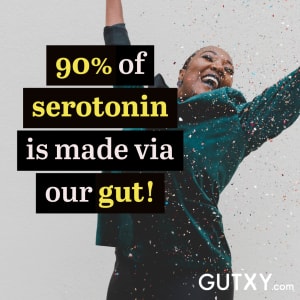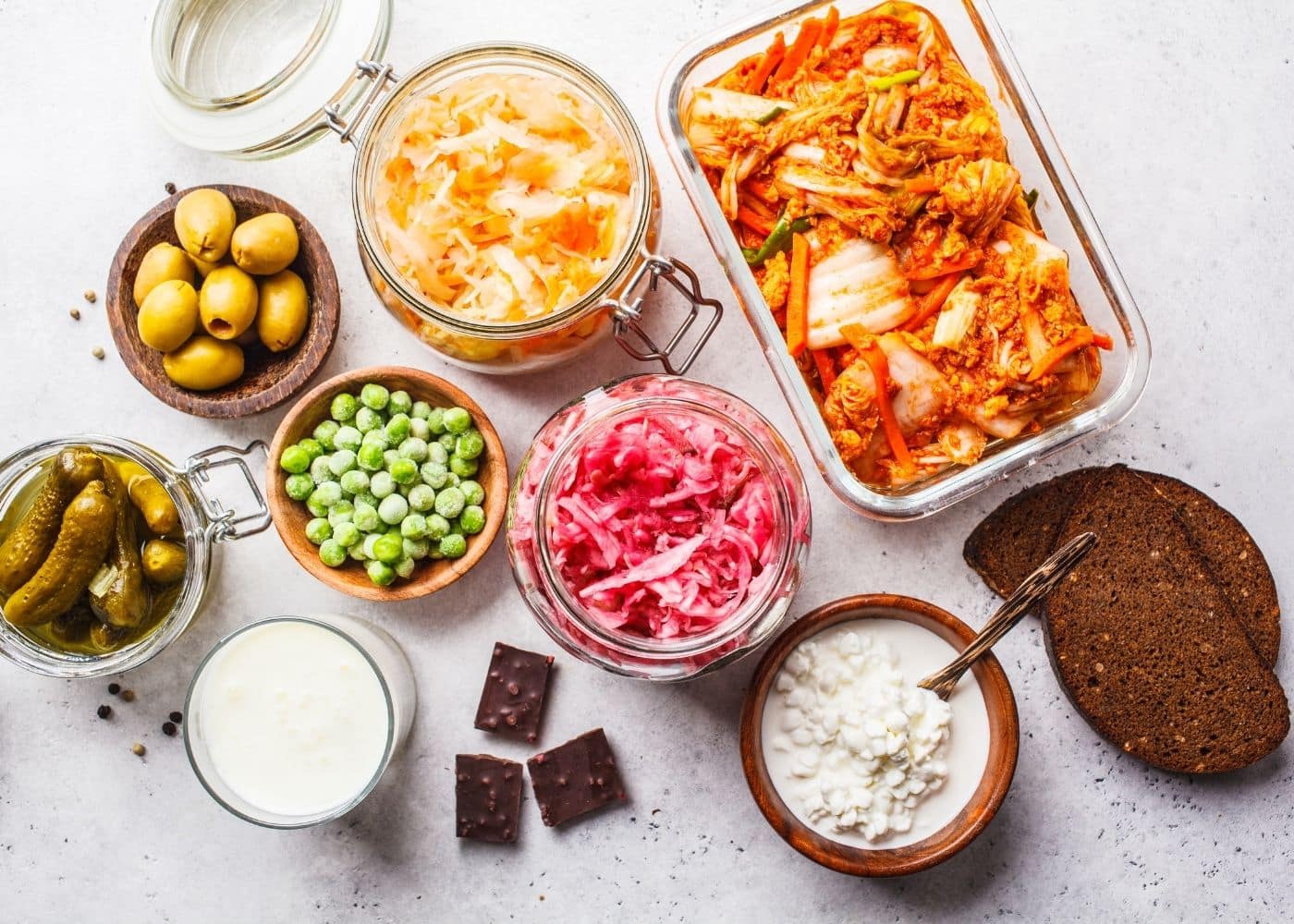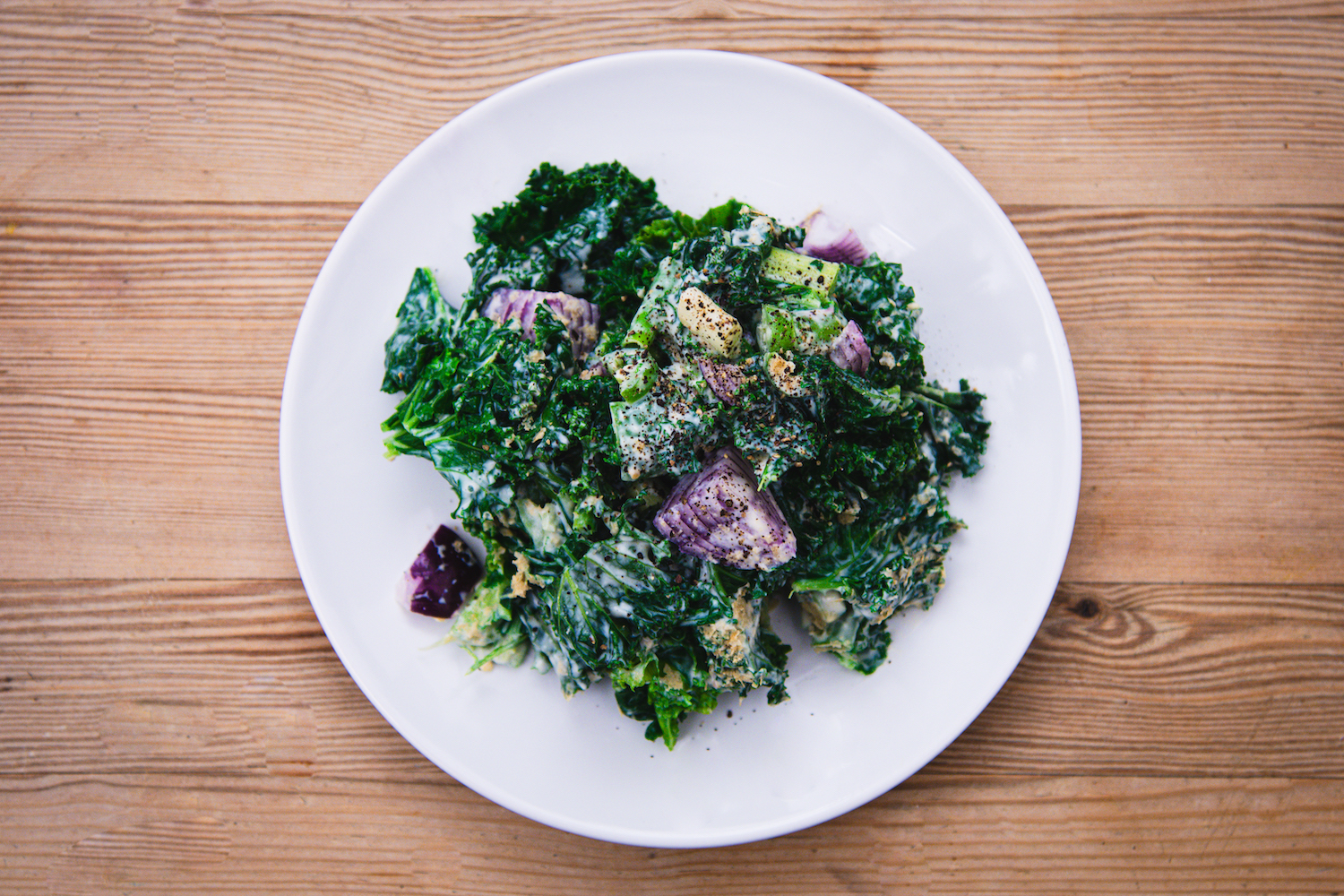In uncertain times, worry and anxiety start to reign supreme and overwhelm our well-being. According to research, there are ways to alleviate anxiety. Here’s how we can create our own anti-stress agents, using our gut.
The impact of turbulent times on our mental health continues to draw concern. It’s something health authorities anticipate will only begin to visibly unfold over the coming months. There have been significant rises in “levels of loneliness, depression, harmful alcohol and drug use, and self-harm or suicidal behavior,” according to the World Health Organization.
Mental health experts have suggested we should focus on the areas of life we can control1, in order to regain feelings of order and ease.
Luckily, we have direct influence over our diet and lifestyle, which can yield huge anxiety-reducing benefits. Here we outline ways in which you can use your gut microbes to support your mental wellbeing.
Gut-Brain Talk
We have two brains. One we all know about, and another, in our gut. Their close connection and constant communication are what we refer to as our gut-brain axis. An advantage of this gut-brain talk is that our gut status can actually influence the health of our brain, including our levels of anxiety2.
There are two main ways our gut influences anxiety processes – through the regulation of neurotransmitters serotonin and GABA3.
This means, paying attention to our microbiome diversity, the integrity of the gut lining, and our inflammation levels. Notably, there are two main ways our gut influences anxiety processes – through the regulation of neurotransmitters serotonin and GABA3. Below, we provide easy ways you can support the efficacy of this helpful duo via simple, dietary changes.
The Happiness Hormone
Serotonin is an essential mood-regulating neurotransmitter/hormone which has been hailed as the ‘happiness hormone’. Low levels of serotonin are implicated in anxiety disorders, sleep disruption, and associated depression4. It is so essential in the treatment of mood disorders that drugs targeting anxiety often increase serotonin uptake.
The production of serotonin highlights how crucial our gut-brain connection is: despite being involved in mental health, 90% of serotonin is made via our gut!5 This shows yet again, how powerful our gut is in its ability to impact fundamental processes systemically throughout our body and brain.
Mood-Boosting Microbes
Certain microbes can help us increase our levels of serotonin and GABA.
By eating foods that feed these microbes, we can help support our mood and alleviate anxiety. Here’s our top 5:
Clostridium
These species produce their own serotonin! Germ-free mice studies have shown that serotonin levels increase when Clostridium species are restored6. By encouraging this species we directly contribute to the process of serotonin production, so it is definitely worth our while!
Increase Clostridium species through:
- Following a Mediterranean diet7
- Eating more papayas8
- Avoiding a high fat/high sugar & low fermentable fiber diet9.
Bifidobacteria
Multiple Bifidobacterium species are shown to be helpful allies in the quest against anxiety; studies show B. adolescentis reduces anxiety triggered by chronic stress, likely due to its anti-inflammatory abilities10. In addition, just 4 weeks of B.Breve intake significantly reduced anxiety scores in participants11. A third Bifidobacterium helper comes in the form of B.longum, which regulates brain regions associated with anxiety such as the amagdala12.
Increase anxiety-reducing Bifidobacterium through:
- High fiber intake
- Live yogurt and kimchi
- Regular Exercise13.
Lactobacillus
We can indirectly stimulate serotonin production via increasing tryptophan, an essential precursor to serotonin. Microbes including Lactobacillus species (L. plantarum) can regulate tryptophan levels, thereby supporting serotonin manufacturing14. This also has the added bonus of enhanced tryptophan levels. which is also involved in sleep regulation, as tryptophan also acts as a precursor to melatonin, the sleep-inducing hormone.
Increase dietary tryptophan intake with:
- Peanuts, Bananas, Dried prunes
Stimulate relevant Lactobacillus species with:
- Olives, Pickles, Mango15
Roseburia
Short-chain fatty acids including butyrate also influence the production of serotonin elsewhere in the gut, within the enterochromaffin cells16. Butyrate is encouraged via increased Roseburia species17.
Raise Roseburia through:
- Walnuts
- Whole grain barley consumption18.
GABA Producers
Inducing species that produce GABA can be therapeutic for mental health, particularly anxiety – these include Lactobacillus brevis, Alistipes putredinis, and Dorea longicatena19.
Dietary sources to support these species include:
- Cruciferous vegetables20
- Chicory
- Asparagus
- Avoid gluten-free diets21 unless essential.
And Lower These…
Reducing Flavonifractor sp. (which ferment gut-based GABA and reduce efficacy) may be useful in addition to increasing the above species22. This can be achieved via avoiding an excessively high-fat diet23, focusing instead on high plant-based fibers.
Your Gut Can Improve Your Mood
By supporting our bodies to increase levels of calming neurotransmitters GABA and serotonin we can reduce our levels of anxiety.
To do this, we can increase intake of fiber-rich Mediterranean-style foods, including cruciferous vegetables, prebiotics, whole grains, and traditionally fermented foods, whilst reducing excessive fat and unnecessary low gluten diets.
If you need help to start a more microbiome-friendly diet, we can help. You are what your gut microbes eat.




